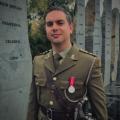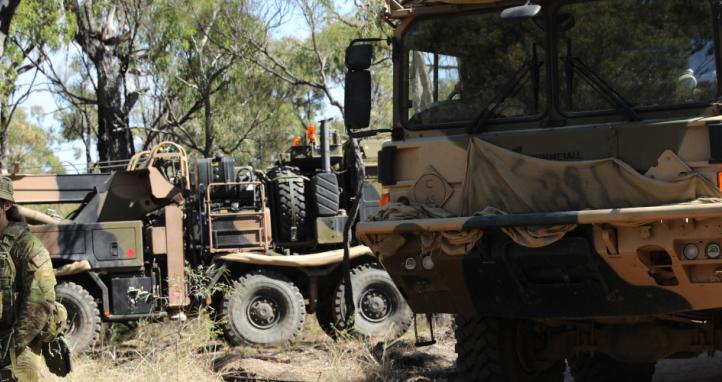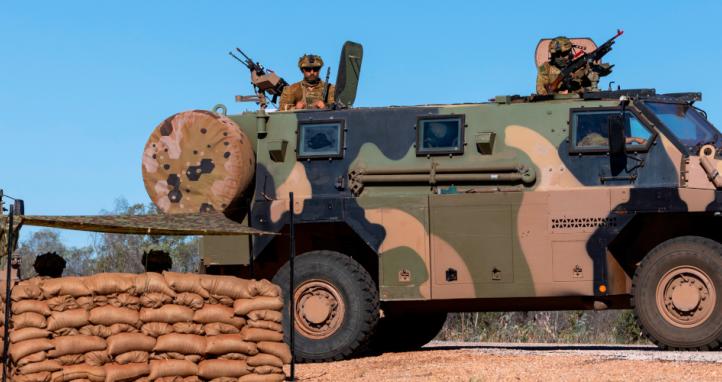Reflecting on professional parallels as an infantry officer and a surgeon
'To be a reservist is to be twice a citizen,' a statement attributed to Winston Churchill[1], is by no means a new concept for the ADF. The Army Reserve brings a unique set of outside capabilities and experience to the ADF. I am a Paediatric Surgical Doctor (SET Registrar at The Royal Children’s Hospital, Melbourne) and an Infantry Officer (OC, Delta Company, 5th/6th Battalion, Royal Victorian Regiment). Whilst the contradiction of these two professions is not lost on me, there are many equivalences and ways the roles support each other. However, could the Combat Corps of the part-time Army learn anything from the Royal Australasian College of Surgeons? And if so, should it?
Life and death
In both these jobs, the decisions made can have real life-and-death connotations for others. A surgeon needs to make the hard call to operate when necessary and potentially live with the repercussions of being wrong or the patient suffering adverse outcomes. A military leader’s tactical decisions also may be right or wrong and are seldom without cost or consequence.
Becoming overburdened leads to burnout or the avoidance of decision making altogether. Both surgeons and Army officers can use this as an excuse to distance themselves and disassociate from their patients and soldiers. While this method allows for more mathematical decision-making, becoming numb comes at a price. Failure to empathise with patients significantly affects their ability to trust their doctor and communicate honestly, leading to patients not following health advice or failing to adhere to a medical/surgical recommendation. Incomplete information due to poor communication can also lead to erroneous decisions surrounding treatment (i.e. the first three-quarters of every HOUSE episode, ever!). Failure to understand the soldiers’ perspectives can lead to the same. If they do not feel their issues are cared about, they will not trust their leadership.
The College of Surgeons places specific emphasis on developing and practising emotional intelligence.[2] Its focus is on the use of empathy rather than sympathy under challenging scenarios. Surgeons strive to understand what the patient is going through without sharing the same emotions; allowing for sincerity in the professional relationship, validating patient concerns, and keeping enough distance to make hard decisions still when needed. Empathy is not an attribute we can just assume all military leaders are born with. It requires considered training and effort to develop. The All Corps Majors Course teaches this concept, but an earlier introduction and emphasis could improve junior leaders’ skillset.
Fatigue and stress
Even with the best practices of emotional intelligence, these professions take a toll. Adding to this are the long hours and inability to leave the ‘work’ at the office. Sleep deprivation, shift work and emergency call-ins are unfortunate realities as a surgeon. No one performs at their best when fatigued. The HALT (Hungry, Angry, Lonely/Late, Tired) criterion correlates to making errors and patient harm.[3] This realisation has prompted hospitals to mandate minimum rest periods between shifts, maximum lengths of rostered shifts, and emphasise the value of self-care.[4] These adopted changes aim to help improve patient outcomes; helping the hospital achieve its mission in turn.
The Army tackles fatigue differently. Training and exercises build in physical and mental fatigue. Officers learn how to revert to a set of fundamental principles for decision making when higher faculties degrade. While this is an important skill to use when out of options, it leads to an unfortunate expectation that staff will do their job regardless of fatigue. This expectation allows a slow degradation of the workforce capability over time, risking errors across an exhausted workforce. Hospital-style mandated work-rest ratios are not a workable option in the military environment. Nevertheless, an increased emphasis on self-care could help the force and improve mission outcomes.
Reconnaissance and diagnosis
Time spent in reconnaissance is seldom wasted … however, a stitch in time saves nine.
The time-critical interplay between seeking information and making a decision exists in both surgery and the military. No surgeon wants to be opening an abdomen without any idea of what they are going to find. However, a common pitfall is delaying a decision by seeking more information than needed, causing the disease to progress.
'Make a decision, Platoon Commander,' is an unhelpful phrase uttered to frozen officer cadets at Duntroon. An over-affinity for action does not lead to good decision making. Proper forethought should identify information gaps to close where possible.
A thorough diagnostic workup and a well-planned ISR matrix have a lot in common. It will look at specific areas (i.e. respiratory, cardiac, gastrointestinal), with a particular modality (i.e. X-ray, CT scan, blood test), with an exact question or action in mind (confirm a diagnosis, operate, start antibiotics).
Surgeons and officers alike must learn to deal with uncertainty from a junior level. However, focusing on seeking and assimilating information and making carefully considered decisions may better train junior officers for the complexity of modern warfare. After all, the fog of war is undeniably grey.
Mortality and morbidity
Success is a lousy teacher. The Army uses After Action Reviews (AARs) and Post Activity Report’s (PARs) to attempt to weed out lessons learnt. These focus on what went well, poorly, and what the team can do to rectify this. However, it is easy for these to drift towards confirmation bias. They tend to focus on what generally went well, marking issues with leadership and decision-making down as system problems.
The surgeon’s version of a review process is not as warm. Departments must adhere to regular morbidity and mortality meetings. These surgeons discuss their patients for whom something went wrong (up to and including the death of a patient). After discussing the case, the responsible surgeon voices their thoughts on avoiding it in the future. Then the surgeon’s colleagues take the opportunity to comment on what they think the surgeon could have done to prevent the situation. While this may sound like a horrific dressing down, it is a very empowering way to learn; these situations leave a ‘cerebral scar.' However, because everyone has their cases to discuss, no one feels alone in having a complication. Another benefit is learning from others’ mistakes, especially senior surgeons who are otherwise considered beyond reproach.
A regular forum where Army leaders in similar fields air their errors and address how to avoid them may yield personal and professional growth in the same manner. However, this will require a cultural change towards accepting that errors and failures occur and placing individual and institutional hubris to the sideline.
Future operations
In both the infantry and surgery, the main focus lies in preparing for future operations. A surgeon and an officer must prepare to be proficient and fit to do the job. They must empower the team with the education and skillset to support this and, most importantly, shape the situation before entering the theatre.
As part of shaping the environment, the College expects even junior surgeons to contribute to the field of surgical research.[2] There are a few reasons for this. Firstly, it shows that they are passionate about developing the profession. Another is that they represent a fresh set of eyes and ideas, making a change and seeing it expand to fruition. Doing this means they continue to develop the field of knowledge and set the condition for lifelong learning, ensuring the best integration of new technology.
It would not be unreasonable to expect the same of junior officers in the ADF. While PME generally centres on absorbing existing knowledge and concepts, an expectation towards introducing and developing new ideas could support ongoing evolution in the profession of arms for the ADF.
Final reflections
These parallels demonstrate several opportunities to develop the ADF, stemming from lessons already learnt by a comparable industry. However, there are approximately seventeen thousand members of the part-time Army, many of whom are professionals in outside fields. Efforts to exploit this external corporate knowledge could serve the ADF far beyond chainsaw instructor qualifications.
On the other side of this same coin, I have grown and developed far more as a surgeon because of my military-learnt decision making and leadership skills. While I have yet to pull out an IMAP workbook or a ways matrix during a consult, my efforts to become a ‘manoeuvrist surgeon’ have at least seen me breaking operations into phases and decisive events.
Despite what Churchill said, no one is two citizens. We all remain confined to one body and 24-hour days. Regardless, I remain devoted to both professions and hope that developing skills and attributes in one continues supporting the other.









